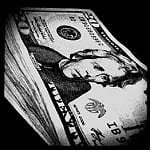 Final regulations have been released providing guidance concerning substantiation and reporting requirements for cash and noncash charitable contributions. The final regulations reflect the numerous changes to the substantiation requirements enacted under the American Jobs Creation Act of 2004 and the Pension Protection Act of 2006. These final regulations provide guidance to individuals, partnerships, and corporations that make charitable contributions. The following final regulations are effective starting on July 30, 2018: Treasury Reg. section 1.170A-15 which pertains to cash, check or other monetary gift substantiation requirements, Treasury Reg. section 1.170A-16 which applies to noncash substantiation requirements, and Treasury Reg. section 1.170A-18 regarding contributions of clothing and household items. New requirements for qualified appraisals and qualified appraisers have been defined under Treasury Reg. section 1.170A-17 and apply to contributions made on or after January 1, 2019.
Final regulations have been released providing guidance concerning substantiation and reporting requirements for cash and noncash charitable contributions. The final regulations reflect the numerous changes to the substantiation requirements enacted under the American Jobs Creation Act of 2004 and the Pension Protection Act of 2006. These final regulations provide guidance to individuals, partnerships, and corporations that make charitable contributions. The following final regulations are effective starting on July 30, 2018: Treasury Reg. section 1.170A-15 which pertains to cash, check or other monetary gift substantiation requirements, Treasury Reg. section 1.170A-16 which applies to noncash substantiation requirements, and Treasury Reg. section 1.170A-18 regarding contributions of clothing and household items. New requirements for qualified appraisals and qualified appraisers have been defined under Treasury Reg. section 1.170A-17 and apply to contributions made on or after January 1, 2019.
Treasury Reg. section 1.170A-15 implements the requirements of section 170(f)(17) for cash, check, or other monetary gift substantiation. This section requires a taxpayer to maintain as a record of contribution of cash, check, or other monetary gift either a bank record or a written communication from the donee that shows the name of the donee organization, the date of the contribution, and the amount of the contribution. The final regulations provide that a bank record includes a statement from a financial institution, an electronic fund transfer receipt, a canceled check, a scanned image of both sides of a cancelled check obtained from a bank website, or a credit card statement. Additionally, the final regulations provide that written communication includes email. A form of substantiation that is not acceptable is a blank pledge card provided by the donee organization but filled out by the donor. A blank pledge card does not show the information required under section 170(f)(17). The final regulations also provide that a single written acknowledgement that satisfies all substantiation requirements is adequate substantiation for multiple contributions of a cash, check, or other monetary gifts.
Treasury Reg. section 1.170A-16 applies the requirements of section 170(f)(11) for noncash contributions and clarifies that these rules are in addition to section 170(f)(8) for cash and noncash contribution substantiation requirements. This final regulation provides that a donor who claims a deduction for a cash or noncash contribution of less than $250 is required only to keep reliable records or obtain a receipt from the donee. For cash contributions, a deduction is allowed for any contribution of $250 or more only if the donor obtains a contemporaneous written acknowledgment of the contribution. A donor who claims a noncash contribution of at least $250 but not more than $500 is only required to obtain a contemporaneous written acknowledgment. When determining whether a contribution meets the $250 threshold, the regulations provide that separate contributions of less than $250, regardless of whether the sum of the contributions equal or exceed $250, are not combined. For noncash contributions of more than $500 but not more than $5,000, the donor must obtain a contemporaneous written acknowledgement and must also file a completed Form 8283 with the return in which the deduction is claimed. For noncash contributions of more than $5,000, in addition to a contemporaneous written acknowledgement, the donor generally needs to obtain a qualified appraisal and must complete and file Form 8283. For noncash contributions of more than $500,000, the donor must complete Form 8283 and attach a copy of the qualified appraisal to the return. The final regulations also provide that if an appraisal is required to be attached to the return for the year in which the contribution was made, it must also be attached to the returns for the carryover years.
Treasury Reg. section 1.170A-18 provides that no deduction is allowed for a contribution of clothing or a household item unless the item is in good used condition or better at the time of the contribution and the donor meets the substantiation requirements of Treasury Reg. section 1.170A-16. This rule does not apply to certain contributions of clothing or household items with a claimed value of more than $500 if the donor submits with the return Form 8283 and a qualified appraisal of the property prepared by a qualified appraiser.
Treasury Reg. section 1.170A-17 provides definitions for qualified appraisal and qualified appraiser. Qualified appraisal means an appraisal that is conducted by a qualified appraiser in accordance with generally accepted appraisal standards. The final regulations retain the requirement for consistency with the substance and principles of the Uniform Standards of Professional Appraisal Practice (USPAP). A qualified appraiser under the proposed and final regulations is an individual with verifiable education and experience in valuing the type of property for which the appraisal is performed. In order to satisfy the verifiable education requirement, an individual is treated as having education and experience in valuing the type of property if, as of the date the individual signs the appraisal, the individual has successfully completed (for example, received a passing grade on a final examination) professional or college-level coursework in valuing the type of property, and has two or more years of experience in valuing the type of property. Since appraisers may need more time to meet the new education and experience requirements, this final regulation will apply to contributions made on or after January 1, 2019.
When planning and preparing for your 2018 tax return, consider the above final regulations issued regarding the substantiation and reporting for cash and noncash charitable contributions so you can be sure to take your charitable contributions as a deduction. If you have any questions or need assistance in determining the appropriate information necessary to satisfy these final regulations, please give us a call.
